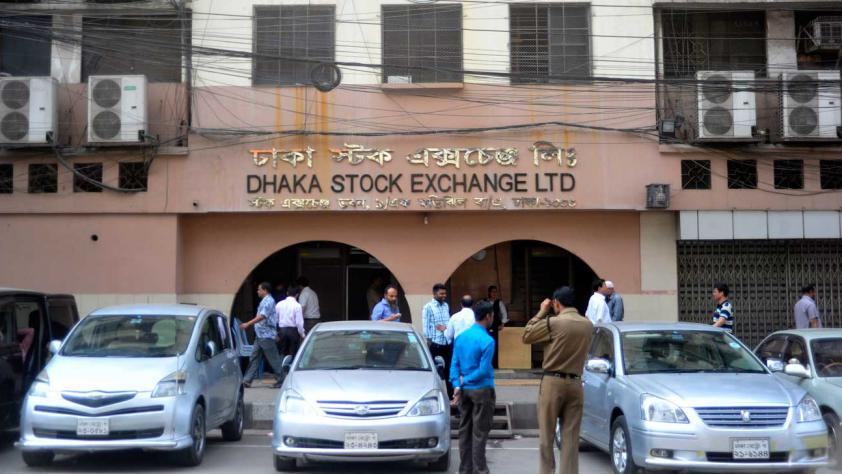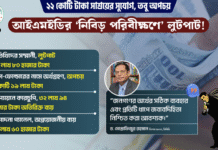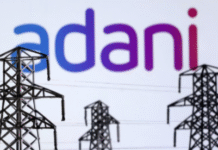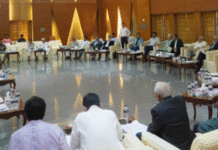
Two top officials of a textile company have been sentenced to four years jail on Monday in a case filed over the 1996 share market scam.
A special tribunal on the much-hyped 1996 sharemarket scam sentenced two directors of a textile company to four years in prison yesterday for their involvement in price manipulation.
It is the first verdict in one of the 15 cases filed over the scam nearly 20 years ago.
Judge Humayun Kabir of the Capital Market Special Tribunal delivered the judgment against Mashukur Rasul and Iftekhar Mohammad, directors of Chic Tex. Both the convicts are on the run.
Rasul and Iftekhar took bail from the High Court soon after the case was filed and went into hiding. They never appeared before the tribunal though the tribunal issued a warrant for their arrest. There was no lawyer to represent them in the court.
The tribunal, formed for quick disposal of stockmarket-related lawsuits, also fined them Tk 30 lakh each. In failure to pay, they will have to serve another six months in jail.
“Justice has been done through the verdict. As a result, transparency will return to the sharemarket while the invertors will regain confidence in the capital market,” Mustafizur Rahman, assistant public prosecutor, told journalists after the judgment.
Chic Tex last held its annual general meeting in 2004. During several physical inspections between 2007 and 2009, the Dhaka Stock Exchange (DSE) did not find its existence in its registered addressed. The DSE could not trace the management and the owners either.
Reports suggest that the two directors of the company, which was listed on the stock exchange through initial public offering in 1996, settled in Canada.
Bangladesh Securities and Exchange Commission (BSEC) filed the case against the two in 1997 on charges of manipulating share prices through fraudulent means in 1996. It filed another 14 cases against 38 individuals, eight listed companies and six brokerage firms over similar charges.
The share price index of the DSE rose as high as 3,648.75 points on November 5, 1996. The following day, it started falling and eventually came down to 462 points in May 1999. Share prices of listed companies soared abnormally, even by several hundred times, before the crash that left millions of investors broke.
The main avenue from Motijheel Shapla Chattar to the Ittefaq crossing had turned into a kerb market in 1996, attracting millions of small investors to trade on the street. Many of them used to come to the kerb market in the early morning for trading with paper shares and go home in the afternoon with hefty profits.
A kerb market is one where trading takes place even outside official hours and without officials procedures.
However, the kerb market in Motijheel was flooded with fake share certificates; insider trading took place with involvement of many stockbrokers and company owners; and the small investors became victims of the cheating.
Only days before the market collapse, the then Awami League-led government had claimed credit for an outstanding performance in the stock market.
After the crash, however, it formed a probe committee in December 1996, headed by Aminul Islam who was vice-chancellor of Jahangirnagar University at the time.
The committee submitted its report to the government on March 27, 1997, identifying a number of companies and some of the country’s biggest brokers and influential individuals involved in market rigging.
The big names include Beximco, Premium Securities, Olympic Industries and TK group. Four members of the DSE were also named in the report.
All of them were accused by the stockmarket regulator in the 15 cases, 12 of which were stayed by the higher courts.
Proceedings of only three cases had been continuing in the special tribunal, which gave verdict in one case yesterday.
“It’s a positive thing that the special tribunal came up with a verdict in one of the cases on the 1996 sharemarket scam,” said Faruq Ahmad Siddiqi, former chairman of the BSEC.
“The rest of the cases should be disposed of,” he added.
Masud Rana Khan, a lawyer for the BSEC, told journalists that initiatives were taken to try the rest of the cases in the tribunal.
According to the government probe report, as sponsor director Mashukur Rasul was holding 8.28 lakh shares and Iftekhar Mohammad 8.35 lakh shares of Chic Tex. But without prior disclosure and violating securities rules, they sold out the entire holdings when the prices rose above Tk 40 from below Tk 10 just within four months.
This means, each of them made a profit of over Tk 2.5 crore.
In 2009, Chic Tex was transferred to the Dhaka bourse’s over-the-counter (OTC) market, a separate trading floor for junk shares. Listing on the OTC market means the companies are non-performing, non-operational or they have no existence.
After recommendations from another probe report on another stockmarket crash in 2011, the Securities and Exchange Ordinance 1969 was amended in November 2012, empowering the government to set up special tribunals to try capital market-related cases.
The tribunal that jailed the two Chic Tex directors began its function in July this year.
Source: The Daily Star









